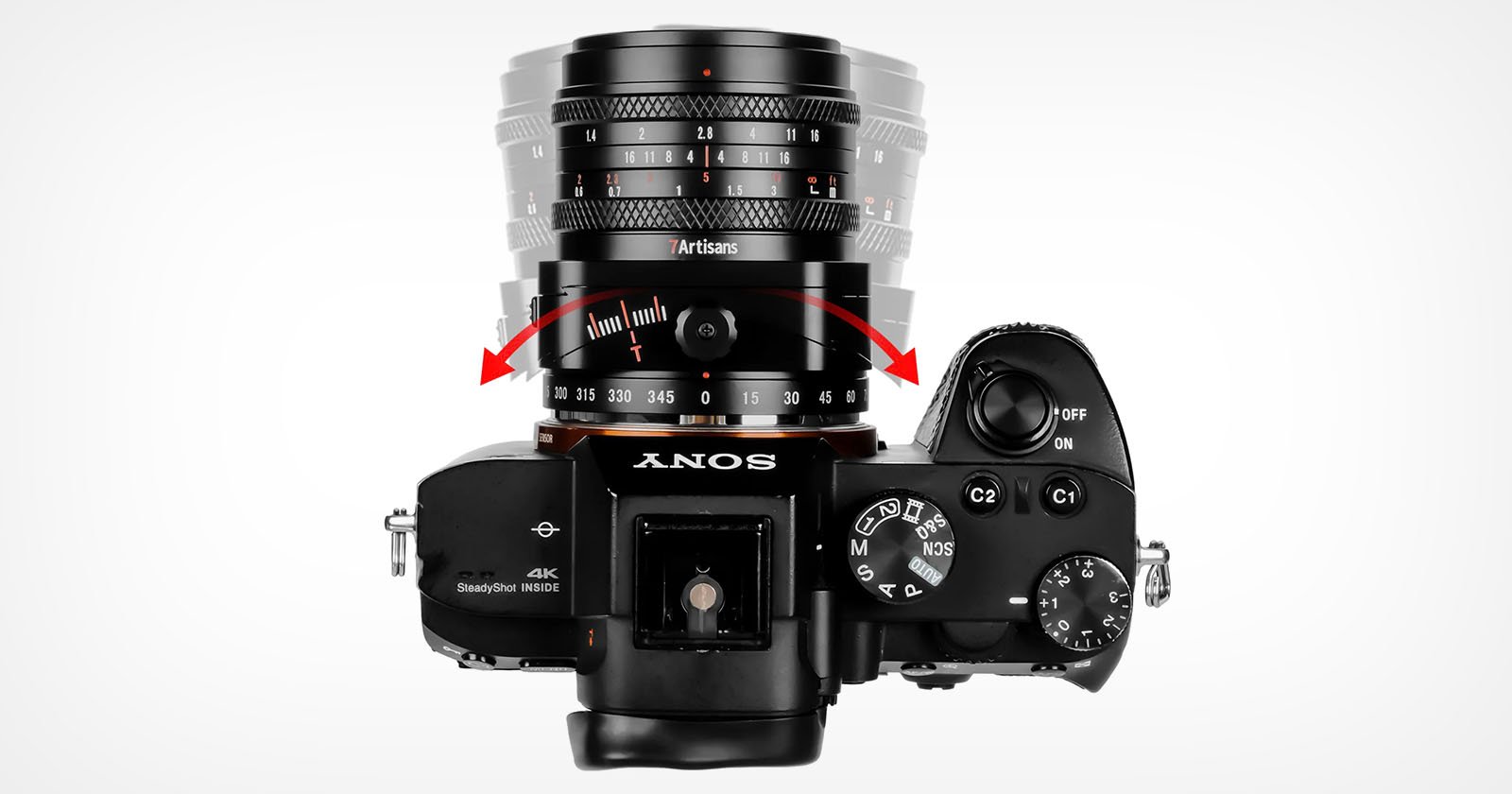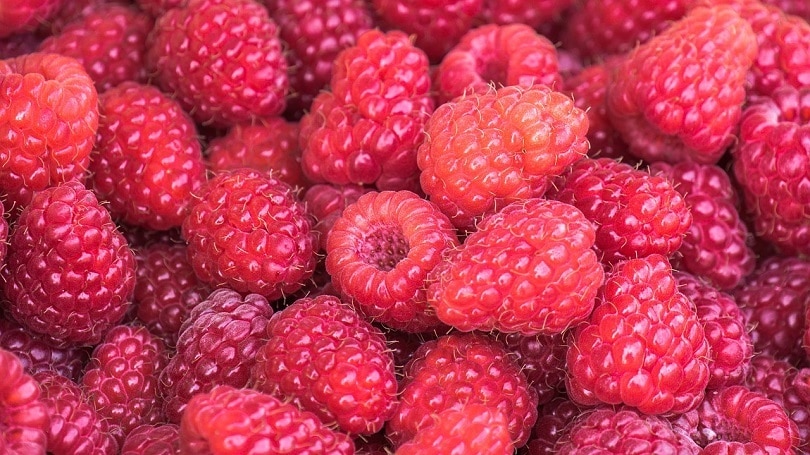

Parrots are sensitive animals with a delicate digestive system. Each parrot has a different primary diet they require to remain healthy in captivity, and it is our jobs as their owners to ensure that all their nutritional needs are being met.
When it comes to keeping your parrot healthy, diet plays a major role. The individual diet applies to the type of parrot you keep, and they should be fed a similar diet that they would eat in the wild. A questionable addition to a parrot’s diet is sugary foods, whether natural or processed. This is where the question of whether fruit has a role in a parrot’s diet, and if it is safe for them to eat.
If you want to learn more about how raspberries affect birds and what role they have in their diet, then this article is perfect for you!

Can Parrots Eat Raspberries?
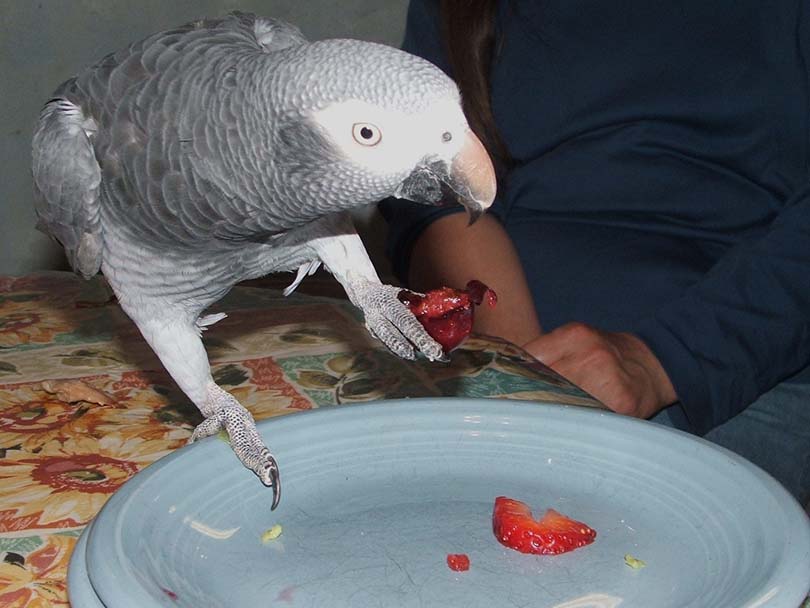
The short answer is, yes! Parrots can eat raspberries with no problem. Any type of berry that is safe for human consumption is also considered safe for your bird. However, just because parrots can eat raspberries, it does not mean that it is healthy for them. In some cases, sugar has no reason to be in a certain breed of parrot’s diet.
Raspberries are not poisonous to birds and contain no toxins that may pose a risk to them. Raspberries can make a tasty snack for parrots, and the sweet taste is guaranteed to make your parrot enjoy eating them. Keep in mind that raspberries have a higher sugar content than other safe fruits for birds. When compared to bananas, apples, and melons, raspberries are richer in sugar.
Aside from the welcoming taste and texture, raspberries are packed with antioxidants, vitamins, and minerals that can benefit your parrot’s overall health.
Parrot Nutrition Info
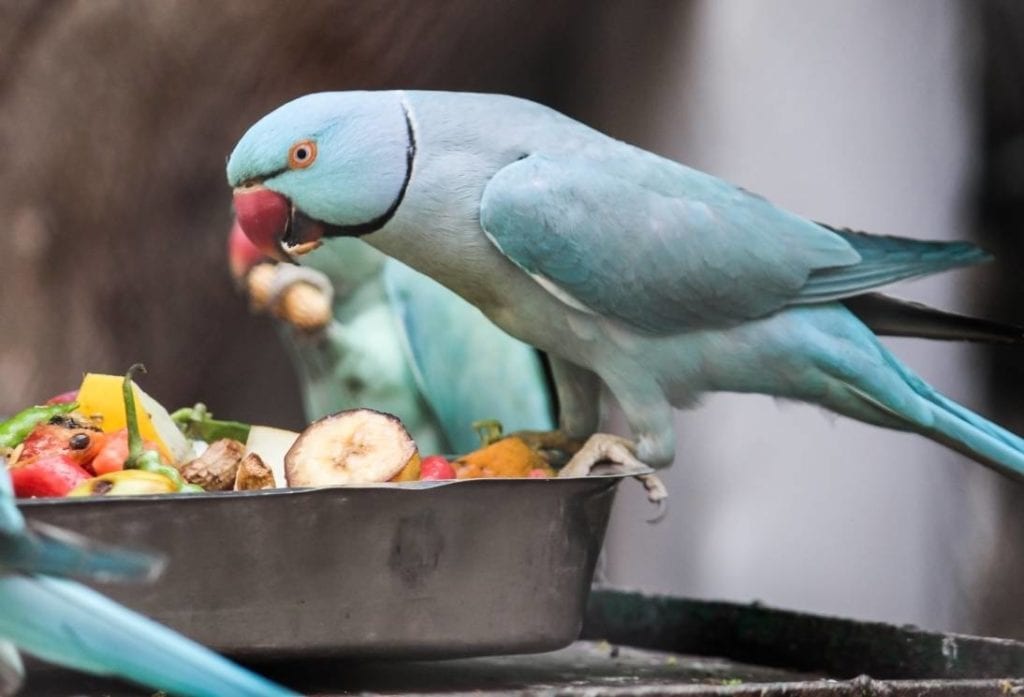
A balanced diet for parrots consists of carbohydrates, proteins, fat, essential minerals, fiber, vitamins, and water. The type of parrot you have will determine the type of food they should be eating in captivity. Some parrots should consume more plant or animal matter than others, whereas some parrots eat the fruit in the wild.
A typical parrot’s diet will be a healthy commercial food with seeds, nuts, and pellets. Parrots who require more fruit in their diet may even be fed commercial mixes filled with pieces of dried fruit. The basis of your parrot’s diet depends heavily on the species you keep. Some parrots can digest sugar better than others, which allows them to have a higher percentage of fruit in their diet.
Small, song-bird parrot species like the budgie and finch mainly feed on small grains and seeds. They should be fed the least amount of fruit.
Medium-sized parrots like Senegal’s, Cockatiels, and Parakeets primarily eat small nuts, grains, seeds, and commercial pellets. Fruit is more tolerable in their diet.
Large parrots like the African Grey, Cockatoos, and Macaws eat shelled nuts, seeds, pellets, and fruit as part of both their natural and captive diet.
Is Sugar Harmful to Parrots?
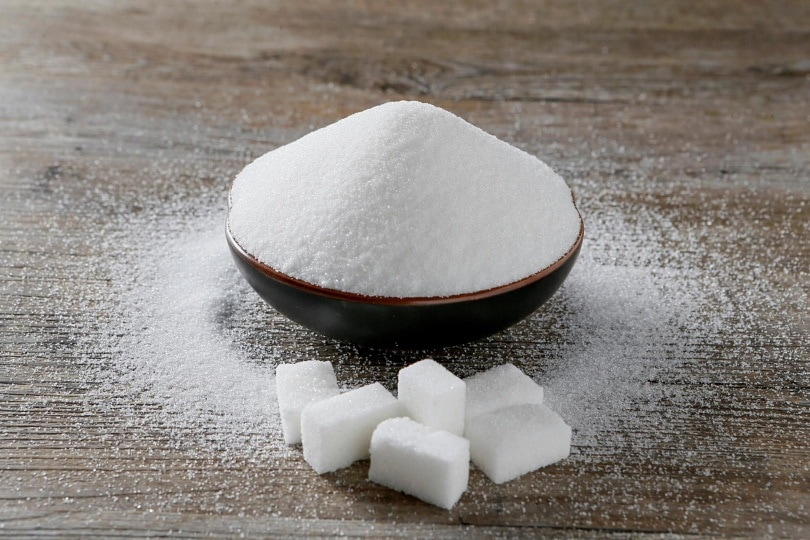
Sugar has no harmful properties that can pose a risk to the immediate health of your bird. Sugar can be harmful if it is fed in large amounts over a short period. Species of parrots who cannot properly digest the amount of sugar in fruits may suffer from minor health complications like diarrhea, an upset stomach, or weight loss.
Artificial sugars and sweeteners are harmful to parrots and should be avoided at all costs. Things like candies, juices, and sweet tonics are not healthy or ideal for parrots. When in doubt, always stick to natural sources of sugar like fruit.
What Parts of Raspberries Can Parrots Eat?
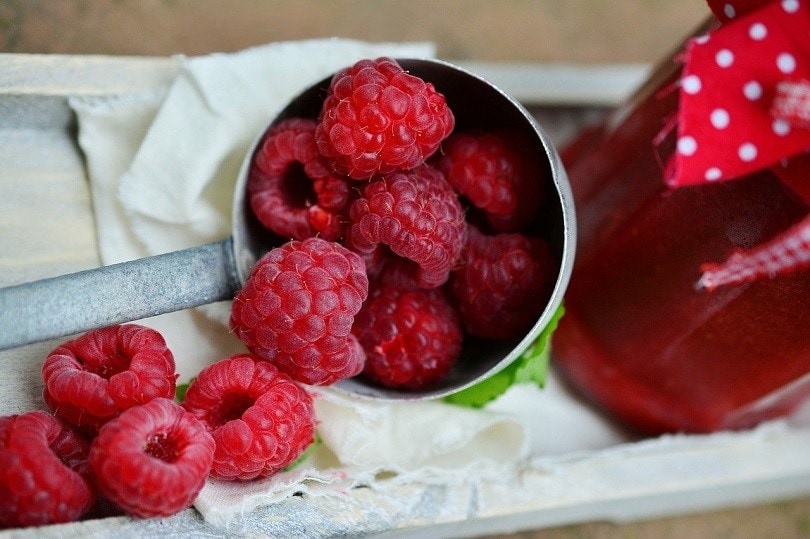
Parrots can eat the entire fruit itself with no issue. The leaves are considered safe for them to eat if fed in small amounts. Most parrots do not eat leaf matter in their diet, which makes them at the bottom of the list when compared to the plant’s fruit that can be fed more often.
Raspberries have very tiny seeds within the juicy layers of the fruit, but it is generally too small to pose as a choking hazard and lacks harmful toxins found in pips and apple seeds.
Types of Parrots That Can Eat Raspberries
Some of the best Parrot species who can safely consume higher amounts of fruit are:
- Senegal’s
- Macaws
- Ringneck parakeets
- Lorikeet
- African grey
These bird species typically eat the fruit in the wild which makes it beneficial to feed them small to medium amounts of safe fruit in their captive diet. However, nearly every species of parrot can eat fruit as a tasty treat.
Before You Feed
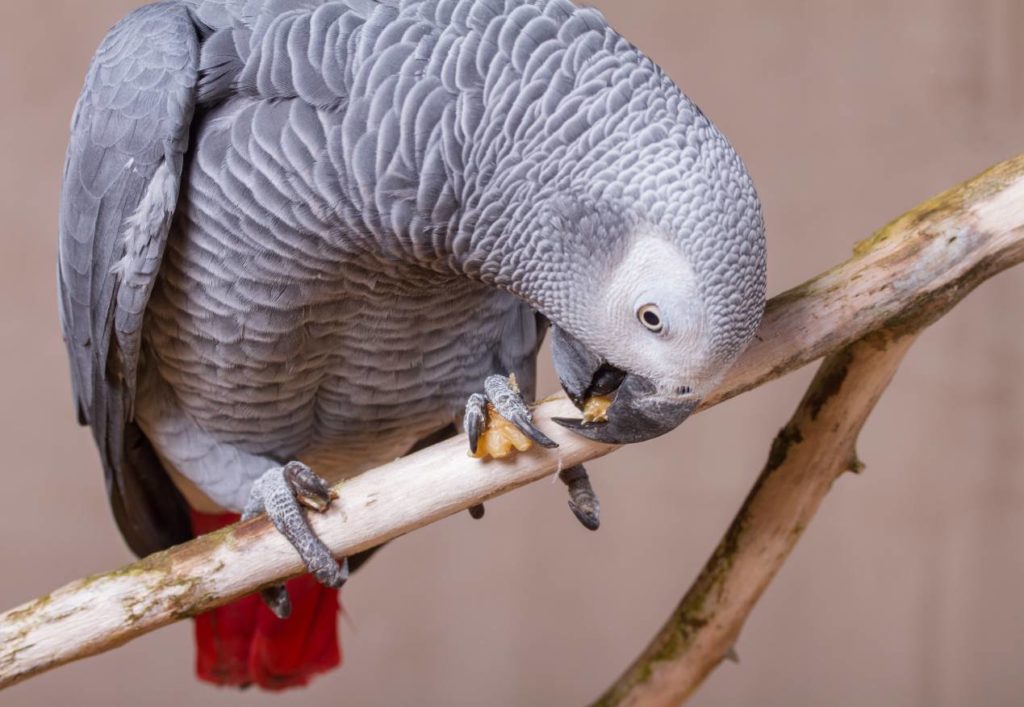
Preparation is important before you begin feeding raspberries, or any fruit for that matter, to your parrot. You want to ensure that the fruit is organically grown and does not have herbicides or pesticides on it. This also means that you should not feed raspberries from a plant in a public area since it is usually contaminated with other animals’ urine, wild-bird droppings, and other harmful substances that make their way into the soil.
Before feeding your parrot a raspberry, it should be thoroughly rinsed under warm water. This can help remove any leftover residue like dust or sand.
The size of your parrot will determine the overall portion of raspberries they can eat. Medium to large parrots can safely eat one whole raspberry every few weeks. Whereas small parrots can eat only half or a quarter of the size.
There are no special preparations for the raspberry-like removing seeds, skin, or pips. It should be noted that the red juice from the raspberry can leave a big mess in the parrot’s enclosure and on their beak and feathers. The area should be cleaned after your parrot is done eating and leftovers should be removed so that they do not foul.
How Often Can You Feed Parrots Raspberries?
New foods should be slowly introduced into your parrot’s diet. If too much is fed at once, your parrot’s body will struggle to digest the food. Keep in mind that raspberries are rich and can cause your parrot to get a stomachache if it eats too much at once.
Raspberries can be fed once a week, or every second week. However, it is recommended to feed a varied rotation of fruits to your parrot, instead of the same type of fruit every week.
Conclusion
Your parrot is sure going to love its new tasty treat! If you are in doubt about how often and how much you can feed raspberries to your parrot species, always consult a bird nutritionist for more advice on how you can safely feed this fruit.
We hope that this article has helped inform you on the safety and benefits of feeding raspberries to parrots and how you can safely implement this fruit into their diet.
Featured Image Credit: Heidelbergerin, Pixabay

Nicole is the proud mom of Baby, a Burmese cat and Rosa, a New Zealand Huntaway. A Canadian expat, Nicole now lives on a lush forest property with her Kiwi husband in New Zealand. She has a strong love for all animals of all shapes and sizes (and particularly loves a good interspecies friendship) and wants to share her animal knowledge and other experts’ knowledge with pet lovers across the globe.


